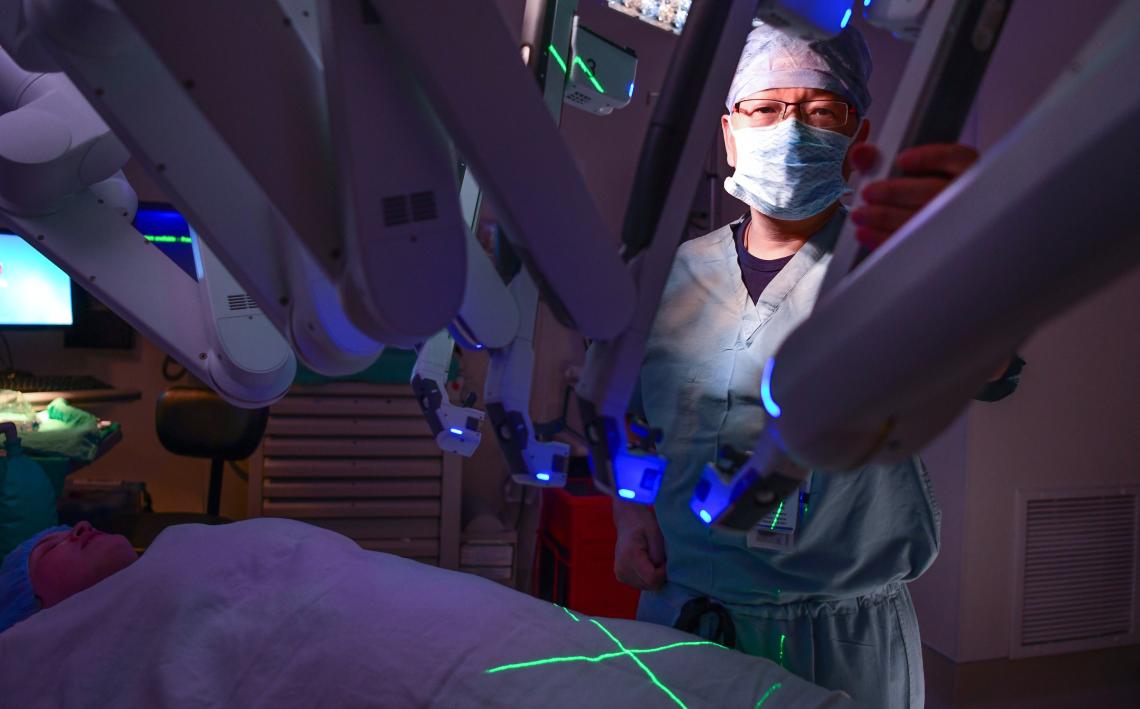
When surgery is required for the treatment of complex benign gynecologic conditions, women today have more options than ever before, with a growing emphasis on minimally invasive procedures – for good reason.
Compared to traditional open surgery, minimally invasive procedures offer benefits that include:
- Shorter hospital stays, if hospitalization is required – many procedures can be performed in the clinic under local anesthesia.
- Faster recovery and return to normal activities
- Less pain
- Less bleeding
- Less likelihood of developing adhesions (internal scar tissue)
- Less likelihood of bowel obstruction (or other complications)
- More cosmetically appealing due to smaller scars
The Latest Techniques and Technologies
At Baylor College of Medicine, we offer the latest advancements in treating complex benign gynecologic conditions. Our highly experienced, fellowship-trained surgeons specialize in treating complex non-cancerous conditions of the female reproductive system with an emphasis on the use of minimally invasive surgical techniques, including use of a robotic platform to perform transumbilical single-incision laparoscopic surgery and transvaginal Natural Orifice Transluminal Endoscopic Surgery (NOTES).
In minimally invasive gynecologic surgeries, tiny scopes and surgical instruments are inserted through very small incisions (or even just a single incision) in the woman’s abdomen (laparoscopic approach), or through the vagina (hysteroscopic approach and NOTES). These minimally invasive techniques eliminate the need for a large abdominal incision.
Our complex benign gynecologic surgeons perform intricate laparoscopic procedures, including resection of endometriosis for chronic pelvic pain, hysterectomies and removal of very large fibroids, using the da Vinci surgical system. Benefits of this robotic technology include:
- A magnified 3-D view for increased surgical precision
- Extremely precise suturing, which helps reduce scarring
- Fewer and smaller incisions than traditional surgical procedures, reducing blood loss and shortening the patient’s recovery time
Conditions We Treat
- Abnormal uterine bleeding
- Adhesions
- Adenomyosis
- Cervical incompetence
- Endometriosis
- Ovarian cysts
- Pelvic organ prolapse
- Pelvic pain
- Uterine fibroids of all sizes
Procedures We Perform
Our complex benign gynecology specialists are experienced in the full range of minimally invasive procedures performed via da Vinci Robotic-assisted or laparoscopic procedures (multiple port, single-incision and NOTES) depending upon each patient’s needs:
da Vinci Robotic or laparoscopic procedures (multiple port, single-incision and NOTES)
- Hysterectomy including da Vinci hysterectomy
- Fibroid removal (myomectomy)
- Ovarian cyst removal
- Excision (removal) of endometriosis
- Adhesion lysis
- Diagnostic laparoscopy especially for pelvic pain
- Transabdominal cerclage
- Cesarean scar defect repair
- Sterilization
- Tubal ligation reversal
- Endometrial ablation
- Endometrial polypectomy
- Myomectomy – MyoSure
Hysteroscopic procedures
- Sterilization
- Endometrial ablation
- Endometrial polypectomy
- Myomectomy – MyoSure
- Diagnostic hysterectomy
- Uterine septum resection
Vaginal procedures
Other Minimally Invasive Procedures
- Cervical polyp removal (Polypectomy)
- IUD insertion
- Loop electrosurgical excision procedure
- Nexplanon
- Treatment of genital warts
- Tubal ligation reversal








